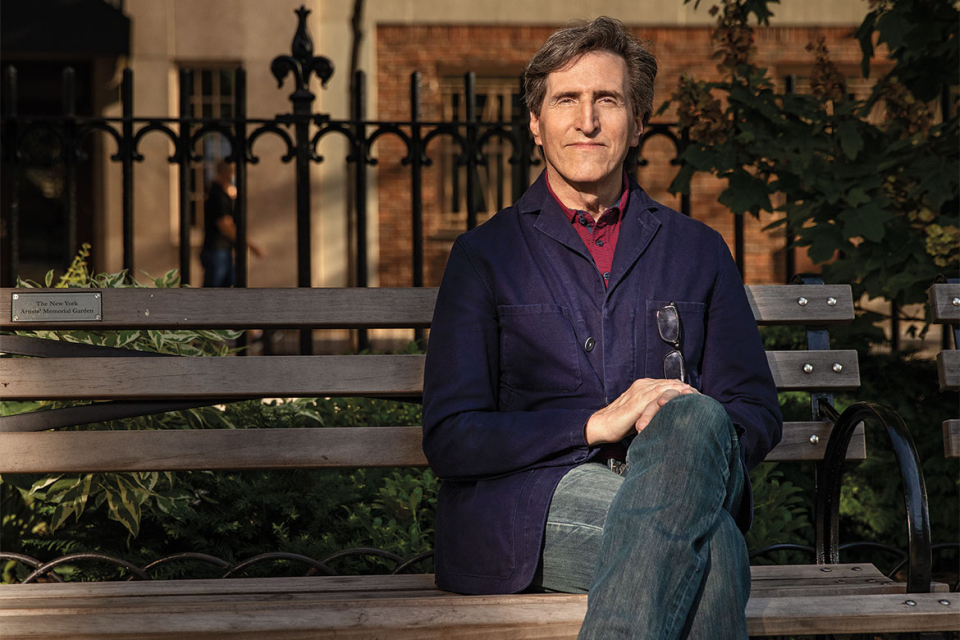If you're a comedy writer and a global pandemic has the country locked down in quarantine, what else is there to do but to make a show about people in quarantine?
That's what playwright and screenwriter Paul Rudnick (Addams Family Values, In & Out) has done with the topical satire Coastal Elites, a 90-minute HBO special that will air in September.
Starring Bette Midler and directed by Jay Roach (Bombshell, The Brink), the show reveals the emotional crises of five characters through a series of monologues, all filmed entirely under quarantine protocols. Rudnick and Roach serve as executive producers in addition to Jeffrey Seller, Flody Suarez, Scott Chaloff and Michelle Graham.
Rudnick actually began work on the piece a year ago, in reaction to President Trump's references to the "coastal elites" — "as if there's nothing worse than being from New York or L.A.," Rudnick laments.
"It turned into this set of five interlocking monologues; they're all thematically connected, and some are more directly connected," he explains. "Trump, the virus, the glorious eruption of Black Lives Matter… it felt like all the pieces wanted to be about the moment. I wasn't sure if it was going to be a theater piece or a film piece — I just knew I had to write these characters."
In addition to Midler, the cast includes Sarah Paulson (Mrs. America), Kaitlyn Dever (Unbelievable), Dan Levy (Schitt's Creek) and Issa Rae (Insecure). Each monologue depicts a character locked down in a specific location.
Midler plays an "upper-middle-class, New York Times–loving Jewish New Yorker," Rudnick says. Others include a woman confessing at a police station and an L.A. actor who's being cast as the first gay superhero.
Even though the pieces were shot remotely, "Jay figured out all sorts of camera methods and apps to make this feel as alive as possible," Rudnick says. He grew to appreciate Roach's no-frills approach to Zoom production, which he compares to "moviemaking, but with all the downtime and craft services removed. It was a wild ride." He adds with a laugh, "It was so unusual it became weirdly normal."
Though the lengthy monologues are rooted in theater, Rudnick says, "They somehow felt designed for the camera. It was like a hybrid of TV and theater. You want the closeness that the camera can bring. On the stage, you're always a bit removed.
"You're working very intensely with actors at the top of their game," he continues. "They're speaking to the camera for 20 minutes straight, making us laugh and making us cry, and they don't let up.
"Watching these monologues come to life at such a superb level — it was a screenwriter's dream."
Ultimately, Rudnick — an unabashed New Yorker — hopes audiences will keep an open mind while watching his "elites" endure their tribulations. "They're my friends and family — the people you adore and the people who drive you crazy. It's not a pretty picture necessarily, but it's a sympathetic and emotional picture," he says. "I hope I've done them justice, warts and all."
This article originally appeared in emmy magazine, Issue No. 9, 2020


